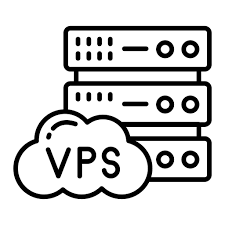How is Securing Telehealth with the Cloud Beneficial?

Strong 8k brings an ultra-HD IPTV experience to your living room and your pocket.
As telehealth grows, so does the need to protect patient information. These applications often deal with electronic protected health information (ePHI), which includes personal health records, medical history, and even real-time data from connected devices.
That’s why telehealth security is becoming more pivotal than ever. Securing telehealth applications with the cloud makes it easier to store, manage, and secure this sensitive data. In this article, we’ll explain how securing telehealth with the cloud is beneficial.
What is Telehealth?
Telehealth is the utilization of digital technology to provide healthcare services remotely. Instead of visiting a clinic or hospital, patients can connect with doctors through online platforms, mobile apps, or video calls. This helps people get medical advice, treatment, and follow-ups right from their homes.
It’s especially useful for those who live in distant places, elderly patients, or anyone who needs regular checkups without the hassle of traveling. Common services offered through telehealth include digital prescriptions, virtual health consultations, and remote monitoring of health conditions.
Common Security Challenges in Telehealth
Telehealth apps help deliver healthcare remotely, but they also face many security challenges. Protecting patient information and keeping systems safe can be difficult for several reasons.
Protecting Sensitive Patient Data
Telehealth apps handle a lot of personal health information like medical records, test results, and video consultations. This data is highly sensitive and must be kept private. If the app lacks strong security measures, patient data can be exposed or stolen by hackers.
Managing User Access Safely
Many people use telehealth apps, doctors, nurses, patients, and support staff. It’s important to manage who can view or edit information. Without good access controls, unauthorized users might get into the system and misuse data.
Dealing with Multiple Devices and Networks
Users connect to telehealth apps from many different devices — smartphones, tablets, laptops — and various networks, including home Wi-Fi or public internet. Each device and network can have its own security risks, making it harder to keep the app safe.
Meeting Healthcare Regulations
Telehealth providers must adhere to strict regulations, such as HIPAA in the U.S., to protect patient privacy. These regulations require specific security practices and regular checks. Not following the rules can result in penalties and loss of trust.
Protecting Against Cyber Threats
Cyber attacks such as phishing, data breaches, and ransomware are common risks for telehealth platforms. These threats can disrupt services or expose sensitive information if security is not strong enough.
Why Cloud Infrastructure is Ideal for Securing Telehealth
Cloud infrastructure means storing and running telehealth applications and data on internet-based servers rather than on local computers or physical devices. This approach offers several clear advantages for securing telehealth services.
Secure and Convenient Access
Cloud systems let doctors, patients, and healthcare staff access telehealth applications and medical data from any location and device. This flexibility supports remote care while ensuring that access is controlled and secure.
Strong Security Features Built In
Cloud providers use advanced security tools such as encryption, which secures data by turning it into unreadable code unless you have the key. They also provide firewalls, regular security updates, and continuous monitoring to detect and stop threats early.
Controlled User Access
Cloud platforms offer ways to strictly manage who can access sensitive patient information. Features like multi-factor authentication require users to add an extra step of verification before logging in. Role-based access ensures people only see data necessary for their job.
Compliance Support
Healthcare has strict rules to protect patient privacy, such as HIPAA in the U.S. Many cloud providers are designed to help organizations meet these requirements, offering built-in tools and certifications that simplify compliance.
Scalability and Reliability
Cloud infrastructure can easily handle changes in demand. Whether the number of users grows or data storage needs increase, the cloud can adjust quickly without downtime or slow performance. This makes telehealth services more reliable, especially during busy periods.
Key Cloud Security Practices for Telehealth Applications
- Always protect patient data by encrypting it when storing or sending it.
- Require users to verify their identity through multi-factor authentication (MFA).
- Restrict user access to the data they actually need based on their role.
- Regularly update software and cloud systems to fix security problems.
- Watch telehealth apps all the time to find and stop any security threats.
- Back up data often, so it can be recovered if it gets lost or damaged.
- Use secure connections like VPNs to keep remote access safe.
- Follow all healthcare rules and standards to protect patient privacy.
Conclusion
Securing telehealth applications is essential to protect patient information and maintain trust in remote healthcare. Using the right cloud security practices helps reduce risks and ensures that telehealth services run smoothly and safely. However, setting up and managing secure cloud infrastructure can be complex and requires careful planning.
Leveraging leading cloud consulting services can turn the tables. They provide the expertise needed to design, implement, and maintain secure cloud environments tailored for telehealth. With proper guidance, healthcare providers can focus on delivering quality care while keeping security strong and meeting all necessary regulations.
Note: IndiBlogHub features both user-submitted and editorial content. We do not verify third-party contributions. Read our Disclaimer and Privacy Policyfor details.







